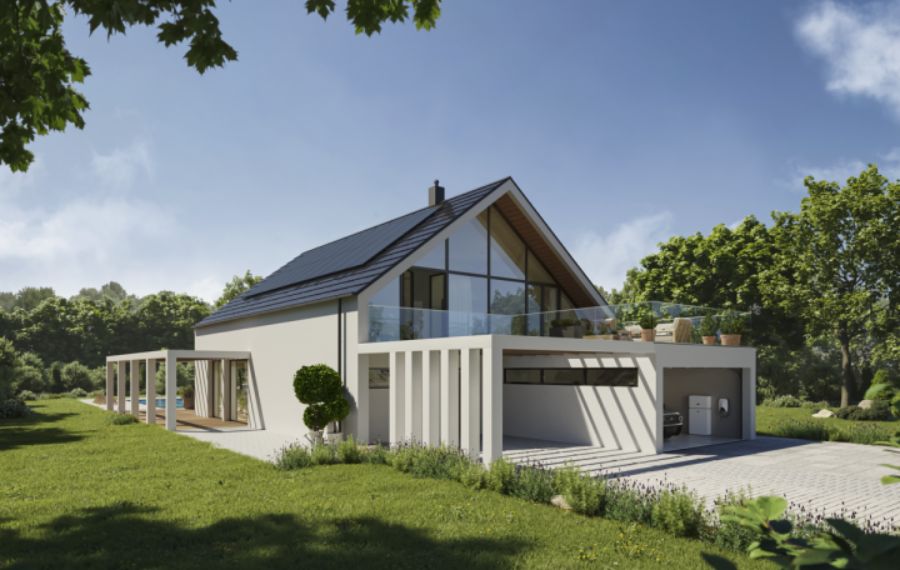
Ralf Elias
Ralf Elias, Chief Product Officer, Maxeon Solar Technologies
It seems like almost every new phone on the market has some new features to try and set it apart from not just the others, but last year’s model. From the power of the camera to facial recognition, each latest generation of smartphone seems to be underpinned by some groundbreaking innovation that the previous version lacked.
So, what do smartphones have to do with solar panels? Well, I think, the solar sector has been following a similar playbook to the smartphone industry around solar panels. And I think there is a competitive advantage for solar installers who don’t get sucked into the race on developing pointless panel features but instead understand the importance of reliability.
Let me explain.
Over the last decade, we have seen a shift in the way solar panels differentiate themselves. Module price has been a point of differentiation in the solar industry for decades. The pace of price drop has been considerable with module prices having fallen from around $2.78/watt in 2009 to $0.27/watt in 2021, further rapidly decreasing today, for premium/ high efficient panels (source). This is important as it means more people can afford solar but in recent years, a new differentiator of panel technology has become more important.
We are now seeing manufacturers racing each other to get more and more watts out of each square meter of solar panel. Every solar advert I see at the moment is now selling itself primarily by this metric.
Disclaimer: I work for Maxeon, and we’re no different, in fact, we are proud of having some of the most efficient panels on the market. The fact is that higher efficiency benefits solar users – they can harness more solar energy and reduce their bills by more. But it also benefits installers, who can install panels more cheaply on a cost-per-watt basis. But efficiency and price are only part of the picture.
We are forgetting the importance of reliability. Unlike most mobile phones, solar panels are a long-term purchase for a customer. I own solar panels and unlike my mobile phone, which I check frequently, I just want to know my panels to take care of themselves.
In the race to generate the maximum power per panel on day one, some manufacturers are not thinking about longevity or reliability. For example, a number of conventional panels in the market are prone to wear and tear as they incorporate bypass diodes. These are meant to counteract the effects of shading by essentially deactivating a shaded or soiled portion of the panel but can also be a factor of failure in panels if they overheat. Maxeon panels are different. Their cell architecture is designed to keep cell temperature lower by offering less resistance to the flow of current in a panel even when shaded, protecting them for the long term.
This means that dealers or installers will spend fewer hours dealing with callouts or maintenance because they’ve sold their customers a better product. It’s not like selling a phone, where a customer is happy to install software updates or get it upgraded with a new battery. When you sell a customer a panel, that’s the last time they want to see you.
At Maxeon we focus on the longevity of our panels so don’t have this problem. We also look to differentiate ourselves through our warranties and pass on more value to our customers.
Every installer knows when something goes wrong, they are normally the first person a customer calls. This is in part due to the sometimes complex nature of solar warranties and customer confusion about what the power warranty covers (defects) and what the product warranty covers (performance). But it seems like any performance issue would be caused by a defect. At Maxeon, we don’t want there to be ambiguity about what’s covered for how long, so we sell one warranty where power and product warranties cover customers for the whole warranty term.
It’s the longest warranty in the solar industry, totaling 40 years of product and power coverage. We’ve chosen to do this because the surest way of helping people get more out of their panels is by reassuring them that they will have solar for life. It’s an acknowledgment of what matters to solar customers, and it’s an expression of our confidence in our solar panels.
I have been in the phone industry for decades and ultimately, out of all the phones that I personally have owned, my favorite was the one that has lasted me the longest. I’m willing to bet that solar customers will think of their panels the same way. I think there is competitive advantage for solar installers who understand that most of their customers will be better served if they give them access to better panels that unlock the potential of the sun for longer.

